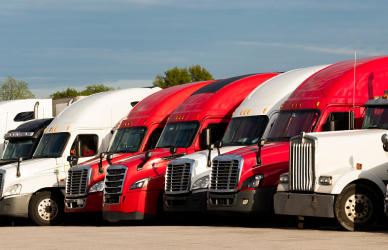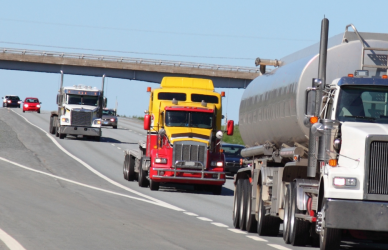As the trucking industry gears up for a strong, yet somewhat uncertain peak shipping season, a recent survey sheds light on the dynamics ahead. According to a Sept. 12 study by Ware2Go, a company founded by UPS, 73% of merchants anticipate holiday sales to surpass previous years, despite the current economy. The survey also highlighted a strategic shift among businesses, with 93% of respondents indicating adjustments to their peak planning in response to several years of market disruptions.
“We’re hearing the interest rates are going up, things are going not as well, everything like that,” said Kelton Kosik, head of supply chain at Ware2Go. “Then you randomly get hit, whatever it was a week or two ago, with consumer spending being up and everyone just keeps spending. So, it’s very bizarre, and it’s made it a challenge and something that we really haven’t seen on a macro scale.”
The National Retail Federation, in its forecast released on Nov. 2, predicted holiday spending during November and December to grow between 3% and 4% year-over-year, reaching a record between $957.3 billion and $966.6 billion. NRF Chief Economist Jack Kleinhenz warns that holiday sales will have “a whole new set of dynamics.”
“The average household remains on relatively solid financial footing despite pressures from still-high inflation, stringent credit conditions and elevated interest rates,” Kleinhenz said. “Recent revisions to government data indicate that consumers haven’t drawn down as much of their pandemic savings as believed.”
Project44’s annual peak season survey on Oct. 25 revealed that 54% of consumers plan to purchase at least half of their gifts online this year. While 79% expressed confidence in timely gift arrivals, concerns were raised about recent issues such as inflation and a drought at the Panama Canal, which could potentially cause disruptions.
“I think overall, we are actually in for the smoothest peak season that we’ve had since probably COVID,” said Jenna Slagle, senior data analyst at Project44. “The only snafu we might see is if retailers aren’t using smart ETAs and they aren’t adjusting fast enough to delays seen by the Panama Canal. They might face some issues in the middle-mile sector.”
Slagle emphasized her reluctance to minimize the significance of the Panama Canal’s impact. However, she pointed out that the disruptions caused by issues at the canal are akin to those that would have arisen before the pandemic.
“We know that there is going to be the volume spike during peak; there always is,” Kosik said. “When I look at it, to be completely honest, I see somewhat of a normal peak season if we had to look ahead and look in the crystal ball and see what’s actually coming.”
Warehouse providers are urged to prioritize labor planning during this period. Observations by industry experts, including Kosik, highlight a growing trend of warehouses employing temporary labor to adapt to shifts in demand, particularly during the holiday shipping season.
“We’re definitely still going to see a downturn in on-time performance for the last-mile market, especially just because of the increased volume,” Slagle said. “But I’m pretty confident that retailers are set up for a lot more success this year than they have been in past years.”
DHL’s survey of small and medium-size enterprises revealed that 33% of respondents anticipate supply chain delays as the primary challenge during the peak season, followed by concerns about inflation at 24% and consumer demand levels at 18%. Despite the increased focus on proactive planning, the survey indicated that supply chain challenges persist as a top concern, surprising some who expected inflation to take the lead.
“It wasn’t, to me, entirely surprising in that the key findings were that people are proactively looking at holiday planning. That’s important to them; that people are making sure that they don’t get caught with a supply chain that’s unprepared,” DHL Express U.S. CEO Greg Hewitt said. “The fact that a third said that they already started planning for that, to me, that’s not surprising.”
Hewitt noted that the onset of supply chain shortages caught many by surprise a few years ago, leading to a shift towards greater foresight. Nevertheless, he expressed surprise at the survey’s indication that the supply chain remains a predominant challenge. Hewitt had anticipated inflation to take the lead rather than being a close second.
“What I was pleased to see was that 70% of the responders believe that there will be an increase or that they’ll surpass 2022 levels,” he said. “I think it shows that e-commerce continues to grow.”
Source: Transport Topics











